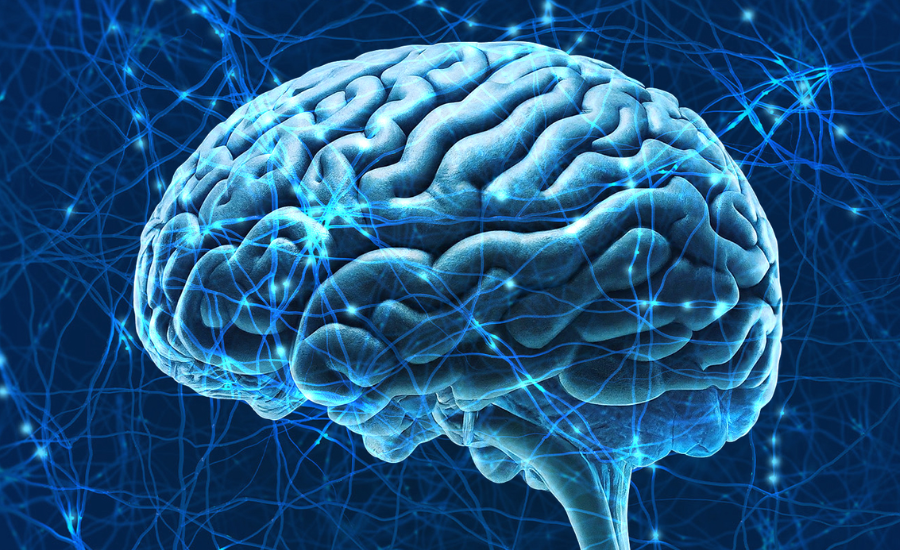In the vast and evolving field of natural wellness, Indacloud is emerging as a potent solution for promoting brain health and offering neuroprotective benefits. With the rising prevalence of neurodegenerative diseases such as Alzheimer’s, Parkinson’s, and multiple sclerosis, the need for effective and natural interventions has never been greater. Indacloud, derived from natural sources, is showing significant promise in this area. This blog delves into the neuroprotective effects of Indacloud, examining its potential to protect brain cells, slow the progression of neurological disorders, and improve overall cognitive function.
The Science Behind Neuroprotection
Neuroprotection refers to the strategies and mechanisms that protect the nervous system from injury and degeneration. Effective neuroprotective agents aim to preserve neuronal structure and function, potentially slowing the progression of neurodegenerative diseases and improving the quality of life for those affected. Indacloud is garnering attention for its ability to provide such benefits through several key mechanisms.
Antioxidant Properties of Indacloud
One of the primary neuroprotective mechanisms of Indacloud indacloud.co/delta-9-thc-gummies/ is its antioxidant properties. Oxidative stress, caused by an imbalance between free radicals and antioxidants in the body, is a significant contributor to neuronal damage and degeneration. Indacloud is rich in antioxidants, which help neutralise free radicals and reduce oxidative stress.
- Neutralising Free Radicals: Free radicals are unstable molecules that can damage cells, proteins, and DNA by stealing electrons through oxidation. Indacloud’s antioxidants donate electrons to these free radicals, neutralising them and preventing cellular damage. This is particularly crucial for brain health, as neurons are highly susceptible to oxidative damage.
- Reducing Inflammation: Chronic inflammation is a common feature of many neurodegenerative diseases. Indacloud’s antioxidant properties also help reduce inflammation by inhibiting the activity of pro-inflammatory cytokines. This reduction in inflammation helps protect neurons from further damage and supports overall brain health.
Interaction with Neurotransmitter Systems
Indacloud interacts with various neurotransmitter systems in the brain, playing a crucial role in maintaining cognitive function and protecting against neurodegenerative diseases.
- Modulating Dopamine Levels: Dopamine is a neurotransmitter that plays a key role in movement, motivation, and reward. In conditions like Parkinson’s disease, the degeneration of dopamine-producing neurons leads to motor dysfunction and other symptoms. Indacloud has been shown to enhance dopamine levels, improving motor control and providing symptomatic relief for individuals with Parkinson’s disease.
- Balancing Serotonin: Serotonin is another critical neurotransmitter involved in regulating mood, sleep, and cognition. Indacloud’s interaction with serotonin receptors can help balance serotonin levels, improving mood and cognitive function. This can be particularly beneficial for individuals with neurodegenerative diseases, who often experience mood disturbances as part of their condition.
Promoting Neurogenesis
Neurogenesis, the process of generating new neurons, is a vital aspect of brain health and recovery. Emerging research suggests that Indacloud may promote neurogenesis, offering further neuroprotective benefits.
- Enhancing Brain Plasticity: Brain plasticity refers to the brain’s ability to adapt and reorganise itself. By promoting neurogenesis, Indacloud supports brain plasticity, allowing the brain to compensate for injury and adapt to new challenges. This can be particularly beneficial in the early stages of neurodegenerative diseases, helping to preserve cognitive function and delay the onset of more severe symptoms.
- Supporting Learning and Memory: Neurogenesis is closely linked to learning and memory. By promoting the growth of new neurons, Indacloud can help enhance cognitive function, supporting learning and memory processes. This is especially important for individuals with Alzheimer’s disease, where memory loss is a predominant symptom.
Clinical and Preclinical Evidence
While more extensive clinical trials are needed to fully establish the therapeutic potential of Indacloud, existing preclinical and early clinical studies provide a promising outlook.
- Preclinical Studies: Animal models have shown that Indacloud can reduce neuronal damage, improve cognitive function, and enhance motor control. These findings lay the groundwork for further investigation in human subjects. For example, studies on rodent models of Alzheimer’s disease have demonstrated that Indacloud reduces amyloid-beta plaques and tau tangles, key pathological features of the disease.
- Early Clinical Trials: Preliminary clinical trials have indicated that Indacloud is well-tolerated and can provide symptomatic relief for conditions like chronic pain and multiple sclerosis. Patients have reported improvements in pain levels, mobility, and overall quality of life. Moreover, initial trials in patients with neurodegenerative diseases have shown that Indacloud may help stabilise symptoms and slow disease progression.
Future Directions and Considerations
The journey of Indacloud from traditional medicine to modern therapeutic use is still unfolding. Future research should focus on large-scale clinical trials to validate its efficacy and safety in diverse populations. Additionally, understanding the optimal dosages, formulations, and long-term effects of Indacloud will be crucial for its integration into mainstream medicine.
- Dosage and Formulation: Determining the optimal dosage and formulation of Indacloud is essential for maximising its neuroprotective benefits. Future research should explore different delivery methods, such as oral supplements, tinctures, and topical applications, to identify the most effective and convenient options for patients.
- Long-Term Effects: While short-term studies have shown promising results, the long-term effects of Indacloud need to be thoroughly investigated. Understanding how Indacloud interacts with the body over extended periods will help ensure its safety and efficacy for chronic use.
Embracing Indacloud for a Healthier Future
As the search for effective, natural wellness solutions continues, Indacloud stands out as a promising candidate. Its potential to alleviate pain, reduce discomfort, and protect against neurodegenerative conditions offers hope to millions. By embracing Indacloud, we may be stepping closer to a future where natural medicine complements conventional treatments, providing a holistic approach to health and well-being.
Conclusion
Indacloud represents a harmonious blend of ancient wisdom and modern science. Its multifaceted benefits in pain management and neuroprotection make it a beacon of hope in the realm of natural wellness. As research progresses, Indacloud’s full potential may unfold, ushering in a new era of holistic health solutions. By embracing this natural remedy, we can look forward to a future of enhanced well-being and improved quality of life.
Read Next: Bangkok Tribune



